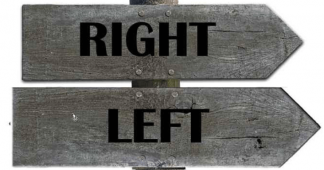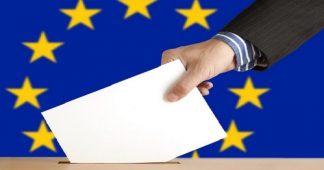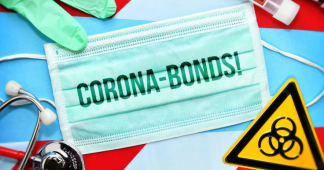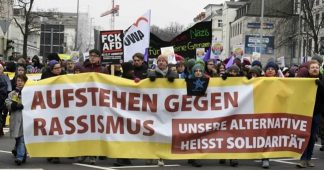by Herman Michiel (*)
21 August 2020
I recently questioned the adoption by the left-members of the European Parliament (MEPs), belonging to the Confederal Group of the European United Left/Nordic Green Left (GUE/NGL) of a resolution on the European Recovery Fund and the multiannual budget. More money for military research (EU Defence Fund), for the quasi-military surveillance of the external borders, and silence about the neo-liberal straitjacket into which the European recovery policy is being poured: these are three indefensible positions even from a moderately progressive point of view.
Mitigating circumstances?
Some would say that mitigating circumstances may be invoked. For example, the resolution also rightly criticises the compromise worked out by the heads of state and government in July on several points, such as the loss of support for the health sector and the reduced fund for climate transition. It is also true that the left-wing group tabled several amendments to the resolution, but these were all rejected. Nevertheless, in the end 29 MEPs of GUE/NGL voted in favour, including the group leadership, five voted against and three abstained.
Judging from some GUE/NGL majority reactions, their MEPs seem to have put the ‘for’ and the ‘against’ on a balance, and opted for supporting that the ‘for’ was winning. The question then is: was it just a tactical compromise, of the sort which happens so often in politics?
Or a more fundamental orientation?
However, it is to be feared that there is more to it than that. Under the previous chairmanship of the ‘radical left’ group (Gabi Zimmer, Die Linke), the political identity of the left – until further notice socialism – was increasingly placed between brackets, in favour of a ‘progressive partnership’ with social democrats and Greens. In Germany, ‘rot-rot-grün’ (SPD-Die Linke- Grünen) is the preferred formula of the reformist wing of Die Linke. Since the European elections of 2019, the chairmanship of the left-wing group in the EP has passed from Zimmer to the Schirdewan-Aubry duo, but the orientation apparently remains the same. This was already evident in November 2019 at the European Forum in Brussels https://europeanforum.eu/brussels-european-forum-2019-edition/, an initiative of the European Left Party (EL) which formed the political core of the GUE/NGL in the previous legislature, but is now considerably weakened. . It was all too clear that the ‘progressive partnership’ with social democrats and Greens only exists in the minds of a number of EL politicians.
Of course, a radical left political programme may be an obstacle for such partnership. No wonder then that government-prone left politicians minimize the role of their own party programme. That was quite clear in a recent interview https://www.deutschlandfunk.de/dietmar-bartsch-die-linke-wir-befreien-die-sozialdemokraten.868.de.html with Dietmar Bartsch, co-chairman of the parliamentary group of Die Linke in the Bundestag. Whereas the party programme wants the Bundeswehr to retreat from the High Command of NATO, Germany to withdraw from the military structures of the Alliance, and in the long term the dissolution of NATO, to be replaced by a collective security system involving Russia, Bartsch ridicules this principled position: “Frankly, the Left will never dissolve NATO, that’s an overestimation, and it is absurd to always give this example.” Bartsch is clearly applying for a place in a future government with SPD – there are federal elections in autumn 2021 – when he states that representatives of the Left Party may have clear positions on foreign policy, “but they are also open for discussion, and at the end of the day we will also be able to be governable in this field.”
Furthermore, Bartsch points out that even Die Linke MP’s voted differently in the past when it was about mandating the Bundeswehr for ‘humanitarian intervention’ abroad – a broad hint.
Also on economic matters…
Some recent analyses in transform!, a publication of the think tank of the European Left Party, show that even the ‘immutable’ left opposition against the European Union doxa on ‘free and fair competition’ is not immune to far-reaching concessions. Roland Kulke is the representative in Brussels of transform! and heads the working group Productive Transformation. Previously he was with the Brussels bureau of the Rosa Luxembourg Foundation. Recently he published two articles (1) on which we will comment further on. Their importance is that they give an insight into the orientations on economic policy of the leading circles of the ‘European left’.
About the ‘deal’ of the European Council
“One of the great dogmas of European economic policy has been thrown overboard,” says Kulke, referring to the €750 billion borrowing that the European Commission intends to raise and make available to the Member States, partly in grants, partly in loans. “But there are still unresolved issues“:
- “no clear link between receiving EU aid and compliance with the fundamental principles of the rule of law”. This concerns primarily, of course, Poland and Hungary;
- the ‘rebates’ or ‘discounts’ that countries like the Netherlands, Austria, Denmark, Sweden and Germany received on their contribution to the EU;
- the neo-liberal commitments linked to European subsidies and loans;
- the “huge number of cutbacks that has in part erased the most promising EU programmes”
Kulke does not comment on the resolution of the European Parliament, which the left-wing group endorsed and which makes no mention of the neoliberal commitments. Nor is there any reference to the monies that, even after the Council’s cuts, remain earmarked for the militarisation of the EU and the guarding of Fortress Europe. Kulke’s criticism remains largely ‘intra-institutional’, limited to a number of anomalies (‘cuts’, haggling over symbolic cuts) that are well known features of the EU budget.
Fair competition, the new paradigm for the left?
The second article (More Money – Less solidarity) https://www.transform-network.net/blog/article/more-money-less-solidarity-competition-of-the-subsidies/ is even more revealing, because it expresses a certain view on what a ‘solidarity-based’ EU should look like according to a certain European left. There are quite a few (unpleasant) surprises in it. Given the scale of the crisis, Kulke and Wixforth can understand that the ban on state aid will be temporarily lifted, but ” the loss of equal competitive conditions is harmful and unacceptable. A functioning internal market demands a ‘level playing field’ for companies and the employees who are dependent on them“. And the current crisis “shows that the strengthening of nation states, e.g. by suspending the State aid rules, increases unfair competition between the Member States.”
Has ‘fair’ capitalist competition become the new paradigm for the left? Should we go along with the idea that “recapitalising companies can be an important instrument for strengthening the EU’s competitiveness” , and that “the White Paper on foreign subsidies https://ec.europa.eu/commission/presscorner/detail/en/ip_20_1070 can be a first step in this direction”? So the Left should support the line of the Commission to take action against (mainly) Chinese investments based on ‘foreign subsidies’, while the EU continues to destroy agriculture e.g. in African countries by its highly subsidised exports? Should the left rally behind the EU’s geo-strategy against China? The latter are questions of high importance, to be thoroughly discussed.
The upshot is: again, with such a programme, the left makes itself superfluous. The left has one chance of survival: the consistent and patient promotion of socialist and internationalist solutions. That means rowing against the current, but there is nothing else.
(1) What Should We Make of the Decisions of the European Council on the ‘Development Plan’ and the Next Multiannual Financial Framework?https://www.transform-network.net/blog/article/what-should-we-make-of-the-decisions-of-the-european-council-on-the-development-plan-and-the-next/ (August 4), and More Money – Less Solidarity: Competition of the Subsidies (https://www.transform-network.net/blog/article/more-money-less-solidarity-competition-of-the-subsidies/ August 3, co-authored with Susanne Wixforth, researcher at the European department of the German trades union federation DGB)
(*) Herman Michiel is editor of the Flemish-Dutch website www.andereuropa.org











